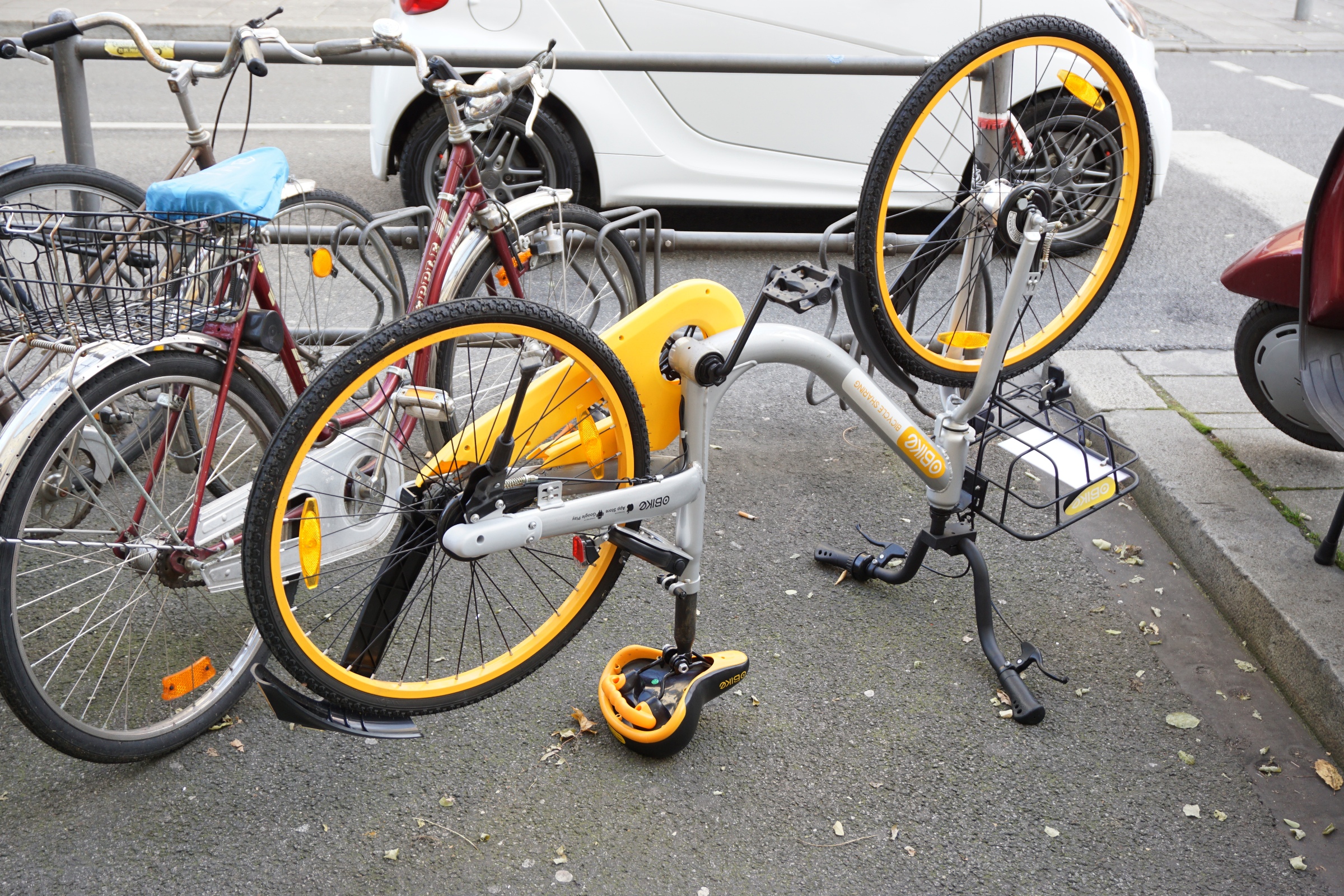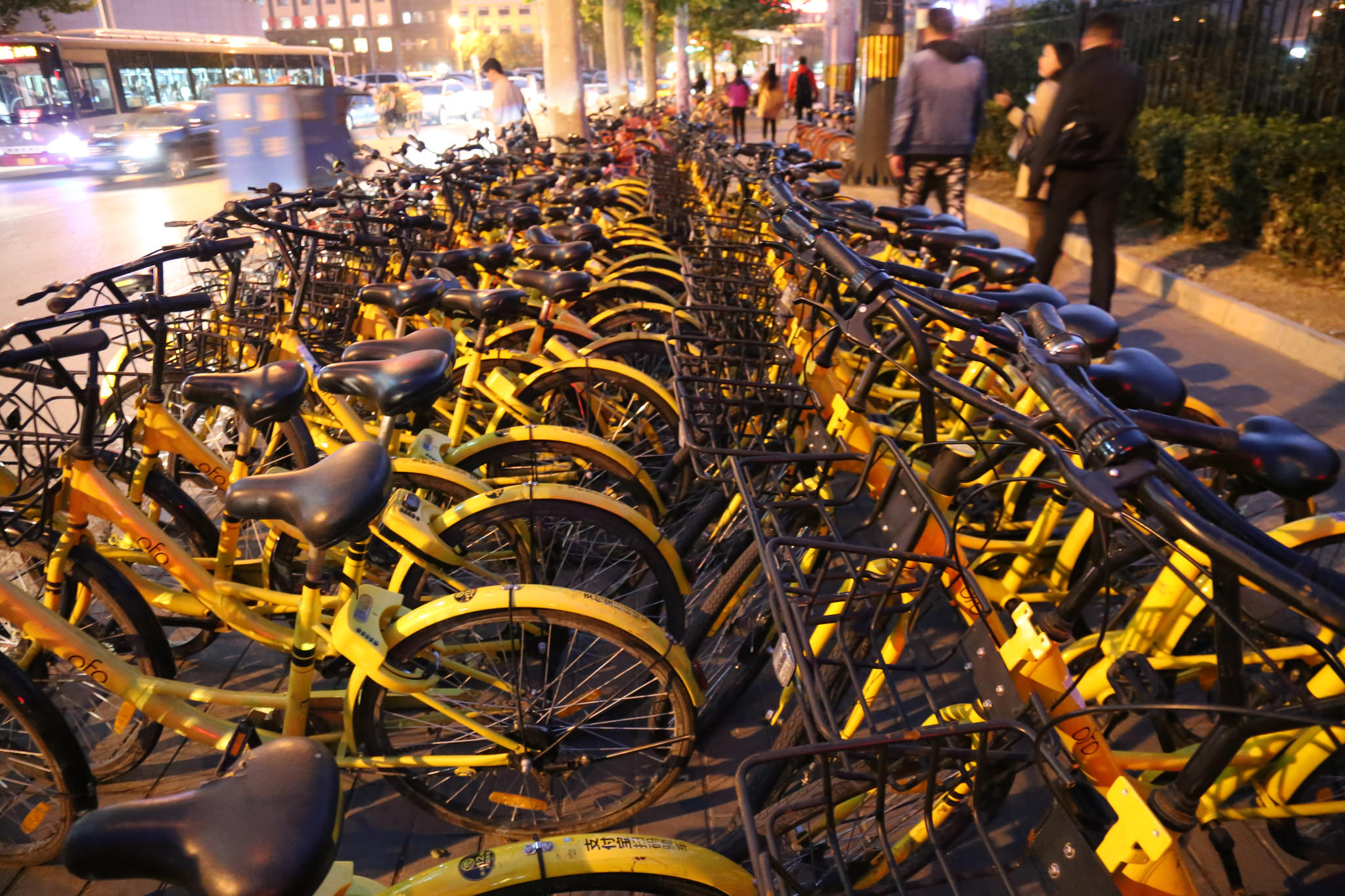Munich, What’s Going On With These Bikes?! Posted by Sten on Jan 5, 2018 in Culture, Language
A few weeks ago, I had the pleasure to visit Munich. The weather was nice, the city is beautiful… Fun times. But there was one thing I just could not wrap my head around… What’s up with all these bikes?
oBike
Aluminum frames and yellow-black paint. A little wire basket at the front. And the lettering oBike. Bikes for hire, muhc like Nextbike or Citi Bike. Many of these bicycles have something truly strange in common: They are parked upside down.
It is not a special feature of these Fahrräder (bikes), it is not a new marketing trick by the manufacturer. It is Frust (frustration).
Das Stadtbild beschmutzt
https://www.youtube.com/watch?v=GkwOxe-IqLc
Thousands of these yellow-silver-black Drahtesel (“wire donkeys” – bikes) are placed in cities around Germany. They are there to be rented, so-called Leihräder (hire bikes). You download the app of the company, in this case oBike, create an account, enter the code of the bike you want to rent, and off you go. It is often a cheap way to get around, sometimes for as low as €1 (about $1) for an hour. When you are done, you simply log off. Because there is no Rechtsgrundlage (legal ground) that prohibits it, you can just put the bike anywhere. Unlike cars, bikes are seen as Allgemeingut (public assets).
So who turns these bikes around? By-passers, angry shop owners, who feel like the Stadtbild (city landscape) is beschmutzt (soiled) with this gelbe Seuche (yellow pestilence), as it has already been dubbed. They want to get rid of them, and so to make using them more difficult, they turn them around. So before you can use a bike like this again, you would first have to turn it around again! And it makes a clear point for anyone to see.
Ok, they don’t look very nice according to some, but is that a reason to be this angry? Well, there is more behind this.
Fahrradfriedhof
Another concern is that more and more bikes will be deployed, and that they will be on every corner in the city. Because so many bikes are not used, they could end up on a pile, discarded somewhere along the river Isar.
And there is a real concern here. Previously, such bikes were deployed in greater numbers in some Chinese cities, with disastrous consequences. True Fahrradfriedhöfe (bike cemeteries) were the result of overloading these cities with such Leihräder. Germans, who are generally concerned with the environment, would hate to see such pollution.
Datenschutz
So how can hiring these bikes be so cheap? Quite simply, because the data required for creating an account and hiring the bike is collected and sold. Even the routes you take are recorded, and can be sold to local restaurants, for example, so they know at what times and who passes their locations. Useful – but scary. Who knows where that data ends up?
Especially Germans, who are often quite concerned about Privatsphäre (privacy) and Datenschutz (data protection), are concerned with such business models – another reason to turn those bikes around!
Not just negative voices
Some people are positive about these bikes. They like to see more Stahlrosse (“steel horses” – bikes) in the Straßenbild (street landscape), and rather hate to see so many Auto’s (cars) around. They take away a lot more space, they say, and there is no space left for bikes!
So what is the solution?
I see it with mixed feelings. I find it a bit funny, but yes – the issue is serious. Is it nice to have a quick, easy and cheap way to get around the city, or is it a plague? Is the business shady and reprehensible, or acceptable? What do you think? Let me know in the comments below!

Build vocabulary, practice pronunciation, and more with Transparent Language Online. Available anytime, anywhere, on any device.







Comments:
Amanda:
Oh, no, this ‘plague’ is already causing havoc in Australian cities. Local governments need to act quickly.
Matthew Pollock:
Not a plague – a convenience. Works well in China, as most people who have stayed any length of time in Chinese cities will agree – taking a picture of a cycle dump and representing that it is a common phenomenon is totally misleading (I never saw one). The advantage of having accessible bikes is that people can go to work by public transport, and do the ‘last mile’ by bike. It’s a great convenience, it gets people out of their cars, it gives exercise, it is non-polluting and safe.